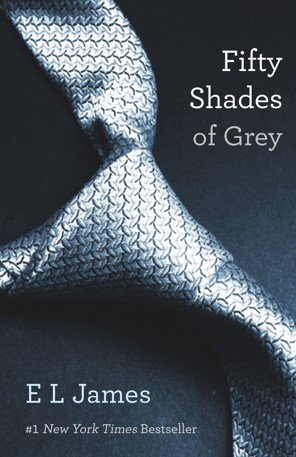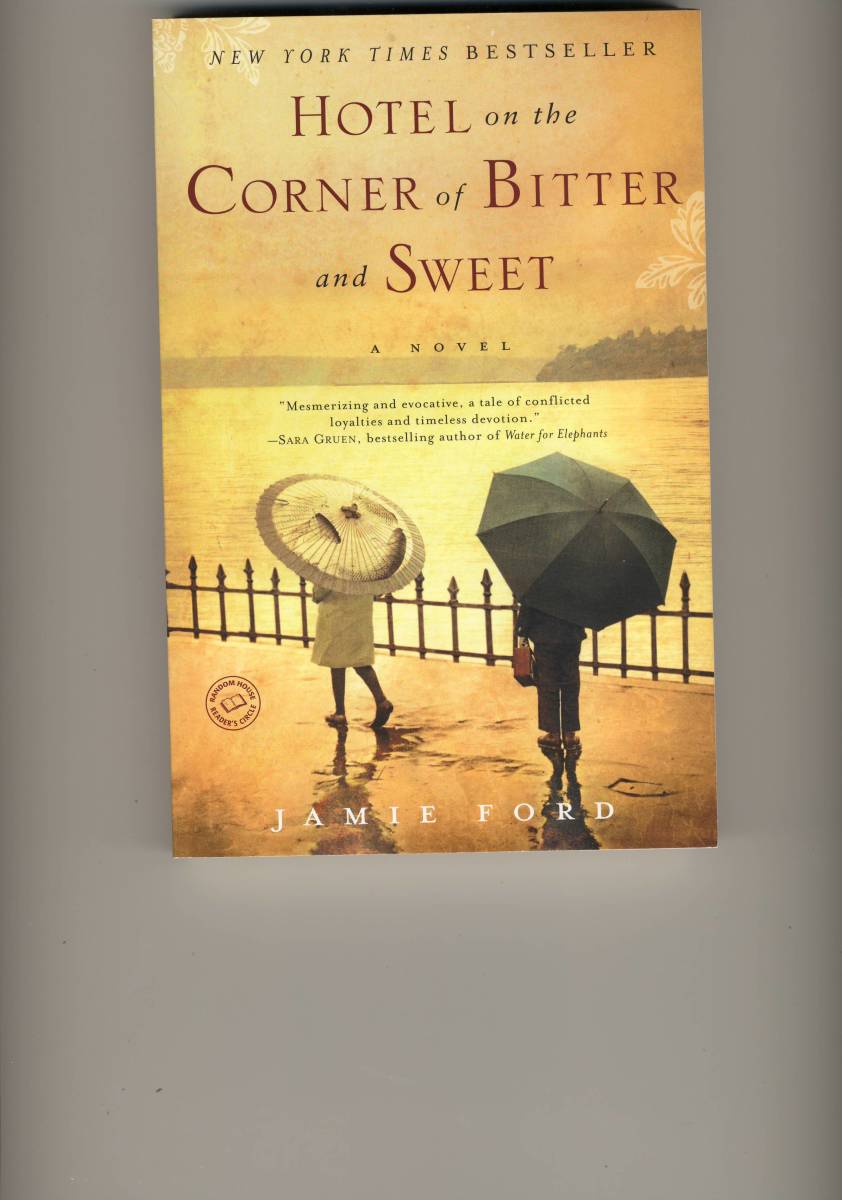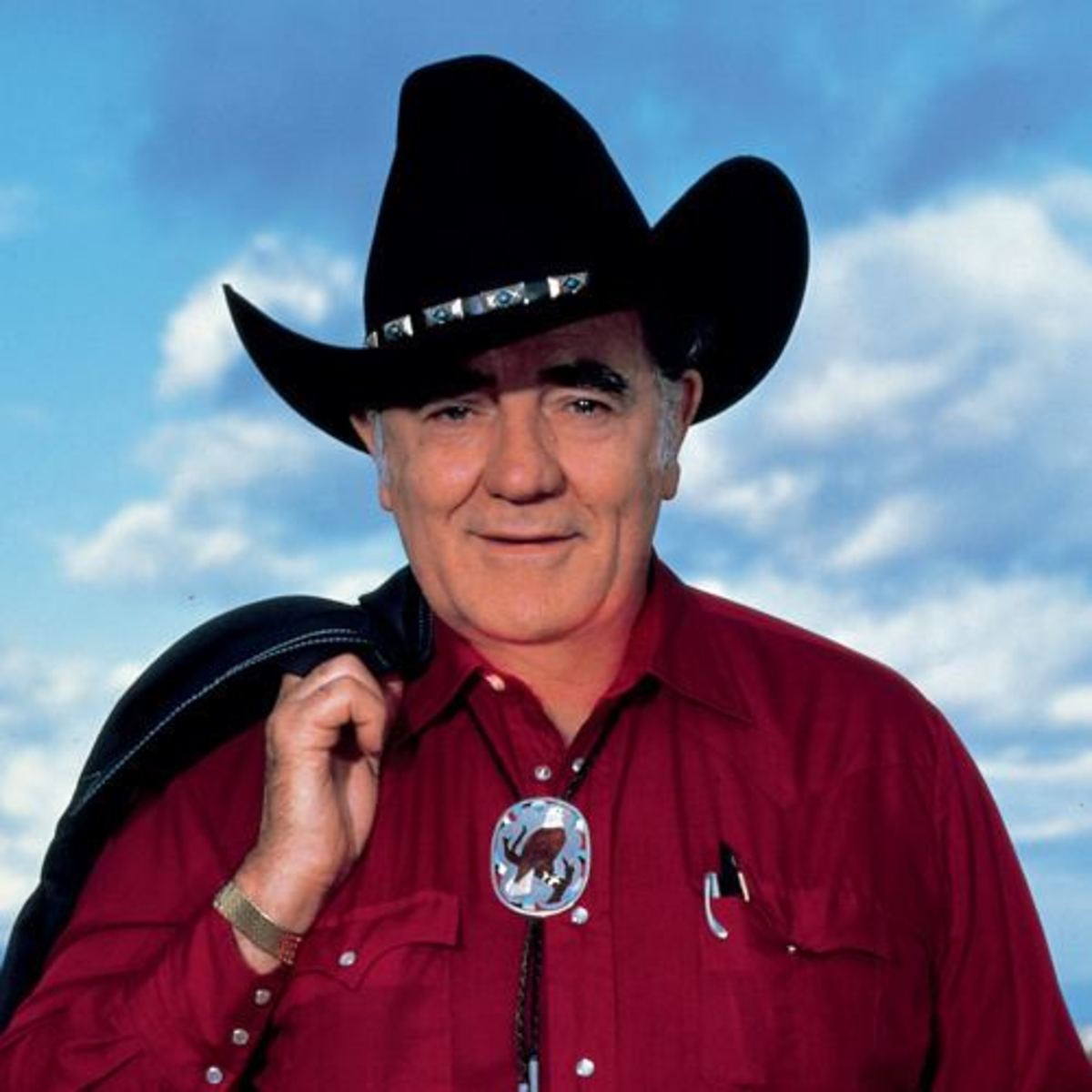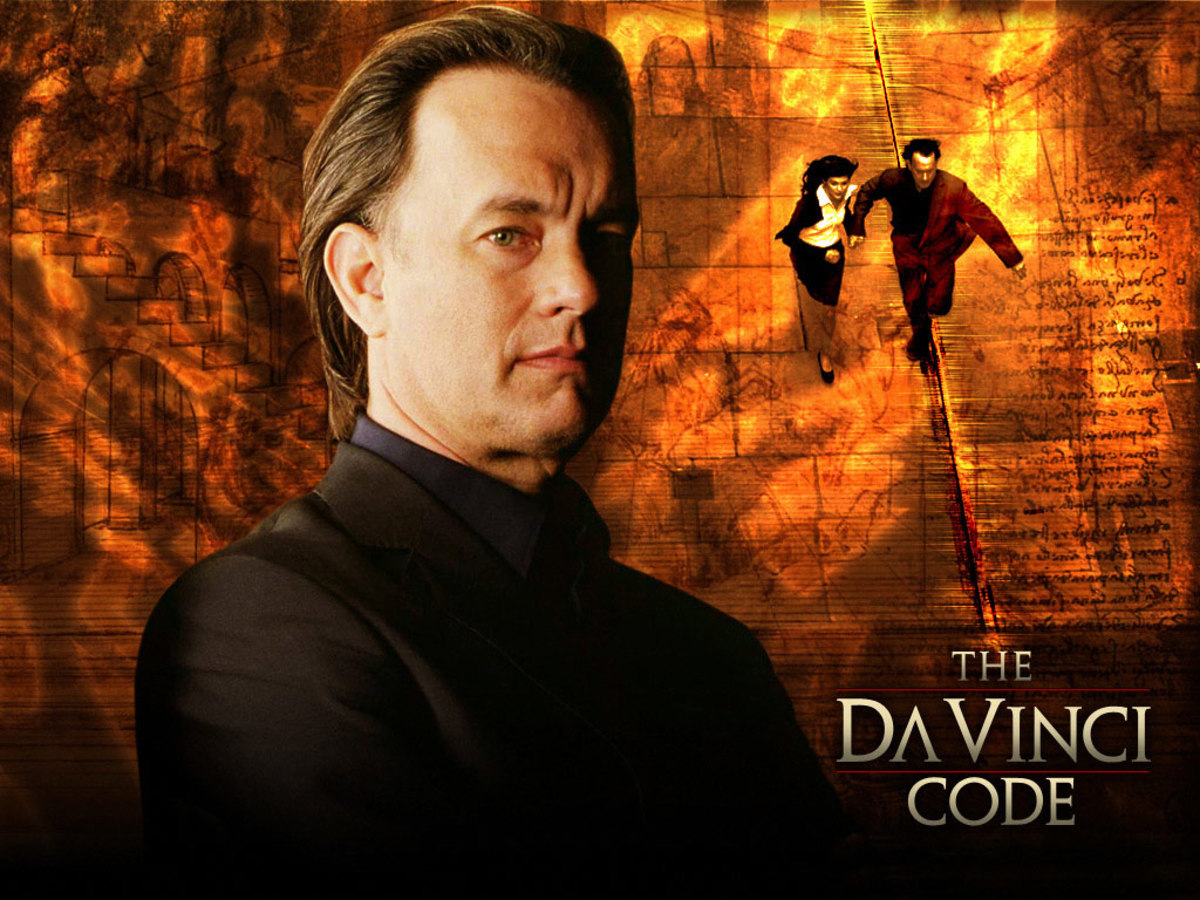- HubPages»
- Books, Literature, and Writing»
- Books & Novels»
- Bestsellers
Should We Be Ashamed That We've Made Fifty Shades of Grey Legendary?

When I first heard about Fifty Shades of Grey a couple of years ago I vowed never to read it. It was so popular, and people wouldn't shut up about it, I went on Amazon to read its sample pages it just didn't seem like my up of tea at all. The overall concept sounded too Harlequin, too much like a cliche, and I couldn't understand what was so special about something whose first handful of pages came across as absolutely mundane and unappealing. Eventually, however, I fell into the throes of public pressure, broke down, and got on the very long waiting list for it at the library. After reading the very eloquently stated one and two star reviews under the book on Amazon I wasn't going to pay nearly $12 for it at Wal-Mart, or even order a used copy online at a reduced price; if i didn't have to dish out any cash for it to satisfy my curiosity, all the better.
How was my reading experience with Fifty Shades? I ended up liking it...a lot. Granted, I'm glad I read the bad reviews first because they actually prepared me for some of the aspects of the story that otherwise would have annoyed me and caused me to put it down instead of reading it till the end. There are times when bad reviews come in handy and work in an author's favor rather than against them, believe it or not. No one lied about what was in the book, and they painted a pretty accurate picture of a tale borne from a cool and lustful imagination, not necessarily genius. Fifty Shades is fantasy, plain and simple. I think that a lot of people went overboard in their criticism of the book, but at the same time, after having read it, I also wasn't sure what made this book such an absolute standout, why some women seemed to think of it as one of the best novels they've read in years, and how it changed so many people's sex lives. Just as much people seem to have their reasons for hating the series there are those who love it, and some people just love to hate it, and it made me start to think of the story outside of the realm of my own opinion.
I ended up analyzing the book a little bit further and raising some questions of my own, and a notable that became the subject is: Should we be ashamed of making this particular novel of erotica go down in history? Are our great grandchildren going to be under the impression that we were smoking crack when we all ran out to buy it or read it? Or was the craze absolutely justified? I came up with seven points on the subject, and I'll let you be the judge of that...
1) It Will Eventually Be Compared to Literature That Are Considered Masterpieces
E.L. James had no clue that her literary effort would have become the phenomenon that it did with not only its trilogy of books, a much anticipated movie slated to be released in 2015, but also being named one of the ten most fascinating people of 2012. She probably also had no idea that her trilogy would break records, having sold a combined total of 90 million copies (and counting).
Despite what critics have to say about its content, the volume in which it sold alone puts it in the rank of such novels as To Kill a Mockingbird and Lolita--books that have been said to be some of the greatest of all time. Charts editor for the website entertainmentwise.com was quoted as saying, "I'm surprised at E.L. James breaking this record. It took Dan Brown the best part of a year to sell 5.2 million and I didn't think it could be beaten in my lifetime." It also placed fourth on the American Library Associations annual study of "challenged books"--works subject to complaints from parents, educators, and other members of the public. The objections being: offensive language, and, of course, graphic sexual content.
To be clear, no one is saying Fifty Shades of Grey is one of the greatest books of all time, but the point is numbers do make a big difference. No one can deny that it made a big splash in the industry, nor can anyone deny that it's made history beyond the romantic/erotica genre.
But should we be ashamed that in some ways it could be compared to other books deemed "better" than it in the future? Truthfully, the answer to that is no.
A story is a story, and the amount of popularity a movie, a song, or a novel attains depends upon the mentality of a particular culture and its people at that particular time. There are classic tales of love and horror, revenge and redemption that some people put on a pedestal today while others think they're either dreadfully boring or its story overrated. Even some of the older stories that are considered intellectual nuggets today were seen as no more than pages of entertainment at the time they were written. When it comes to popular fiction, that is what people want to know: Was it a good story? Did it entertain you? Did you want to keep reading it? How many times did you read it?
Popular fiction isn't the same as academic fiction that was possibly penned by a literary snob. Plenty of times I've picked up a book by a relatively unknown published author and although the book was technically well written I could barely get through the first chapter because it was obvious to me that the author's goal of writing the book was to try and prove their intelligence instead of telling you a good story. Sometimes a reader just wants to have fun and pick up a story they can sink their teeth into and turn their brains on autopilot for a little while. An author can do both--write exceedingly well and prove to the reader that they are indeed smart while telling a good story--but sometimes the story is enough, and that's ultimately what Fifty Shades: Fun. It represents how far people have come in what they're willing to accept in mainstream fiction. There were plenty of other authors before E.L. James came along who wrote "romantica", like Maya Banks for instance whose books definitely have a following, but nothing in comparison to Fifty Shades. There's no question that there were plenty of BDSM on the market before the release of Fifty Shades as well, but there were elements that separated Fifty from its counterparts. A lot of erotica focused on being as raunchy as they could with very little emotional connection between its characters, and Harlequin-style plots and dilemmas (i.e. far fetched kidnappings, almost comical mishaps, etc.), whereas Fifty Shades was about the two main characters, Ana and Christian, and what they wanted and needed from one another. There is the fantasy element of a rich man wanting desperately to sweep a girl off her feet and give her whatever her heart desires and at the same time him wanting to dominate her, but there is also the falling away of the unnecessary (and most times absolutely ridiculous) subplots that have been constants in the majority of romance fiction and took the focus away from the characters instead of blending in with the background of the story. Most of the plots in romance novels have a tendency to overshadow their characters instead of moving alongside them, but Fifty Shades represents the modern-day couples that compromise, who communicate over various means of technology and express things they otherwise wouldn't face to face, and it also represents the new breed of flawed characters. They have issues defining their relationship status in the beginning the same way a lot of people do now, and they also have their own personal mental and emotional issues that they have to find ways to deal with. Some of their issues may not be on the same scale as yours, but we all have issues, and it makes readers able to relate to them better than they were able with characters in other romance fiction in the past.
Nearly a year ago I was having a conversation with another woman about Fifty Shades and she pointed out to me--ever so subtly--that I was being overly critical of the book and I decided to take a step back and I realized that I was, and so have a lot of other people. Not every woman has the fantasy of being dominated, but obviously a lot do or the book wouldn't have been as popular. There are a lot of things we can analyze and pick apart about Fifty Shades of Grey that make it a "bad book", but it also has qualities within its pages that put it in the category of a "good book"; it just depends on your taste, how you view certain forms of literature, and how you view the world and relationships. Some people have different views when it comes entertainment whether it's books, music, movies, or TV shows, and Fifty Shades of Grey has entertained millions of people. If anything, we should be happy that people are showing they have more of an open mind by embracing fiction more openly today that they wouldn't have in the past.
2) E. L. James is an Author Who Will Go Down in History Despite the Fact that She Basically Wrote Fan Fiction that Went “Viral”
First of all, what exactly is fan fiction? Not everyone delves into it and it's not a good assumption to make that everyone understands exactly what it is. Fan fiction is a viewer's fictional creation as an homage, usually to a popular television or book series. For example, if a person adores a certain TV show and they want to create their own version of it to share with other fans of the show, there are usually forums set up for them to do so. There are those who strictly love reading fan fiction, and there are others who enjoy both reading and writing fan fiction. If you didn't know, Fifty Shades of Grey was originally fan fiction based on the Twilight series by Stephanie Meyer.
James was quoted as saying, "“Well, it all started way back in the day when I saw ‘Twilight,’ the film, and I loved those books — I could not put [them] down, absolutely avidly read the books. This switch was flipped. I had to write — started writing, wrote a novel, then I discovered fan fiction wrote about Edward and Bella and then decided to write about Christian and Anastasia. I took the fan [fiction], and a friend of mine re-wrote it and I thought — if he could do it, so could I, and now I am here." Her agent was then quoted as saying, "This did start as 'Twilight' fan fiction, inspired by Stephenie Meyer’s wonderful series of books. Originally it was written as fan fiction, then Erika [E.L. James] decided to take it down after there were some comments about the racy nature of the material. She took it down and thought, I’d always wanted to write. I’ve got a couple unpublished novels here. I will rewrite this thing, and create these iconic characters, Christian and Anna. If you read the books, they are nothing like 'Twilight' now."
Normally, books that break records in the publishing industry aren't openly based on another hit series. It's not as if you see Star Trek, Harry Potter, and The Hunger Games spin-off fiction on the New York Times Bestseller List and that's just one of the things that makes Fifty Shades unique. i think it shows how powerful pop culture is now, and it's bigger than it ever was before. There are people who are undoubtedly annoyed by this, but I think it's not only fascinating, but also quite brilliant.
Should we be ashamed that we made a novel based on fan fiction legendary? No. At least I don't think so. Twenty years ago this book never would've seen the light of day. Fifteen years ago this book more than likely would've been laughed out of public view. Much of the key to its success is this generation of people, especially women, who openly embraced this story and turned others onto it, when in the past most women would've enjoyed it privately and never would've told a sold they read it at all.
This book represents the day and age that we live in. Fan fiction not only unites fans of a certain series, but it also influences the producers and writers of certain TV shows (I'm not saying that's always a good thing, though). We're living in a time more unique than ever before because we have more of a connection to the world around us rather than just the communities we live in and their surrounding areas. What started out as E.L. James reaching out to Twilight fans who could enjoy her writing an adult version of Bella and Edward scenarios, has become a literary empire all on its own.
3) A "Poorly" Written Book Sparked A Trend in the Literary Industry
There isn’t an exact number of books (company or self-published) in the erotica/BDSM genre inspired by Fifty Shades of Grey that are available now because the number goes up every single month at this point. However, there are a few columnists that have pointed out what most of us realized already--Fifty Shades sparked a trend in the industry.
According to an article on CNN.com, "Observing the hype and hysteria, there is at least one writer who says that erotic romance is and remains a niche market. 'It had a boom in the past, and the market wasn't able to sustain it.' There was a bust around 2007, and this spoilsport predicts there will be a bust again. In the interim, dozens of erotic romance novels by authors such as Eden Bradley, Sylvia Day and Megan Hart have landed on best-seller lists, firmly establishing the genre as a major player in the publishing industry. Romance readers, known for their voracious literary appetites, were among the first adopters of e-books, said Michelle Renaud, spokeswoman for publisher Harlequin, which has been carrying erotic novels since 2006."
A lot of romance authors who already had their own following copied the basic outline and characters from Fifty Shades of Grey (mentioned in the quote above) and subsequently opened up their work to new readers. I'm sure that a lot of literary agents weren't thrilled with this because most of them weren't interested in publishing duplicate novels by "nobodies", but they were bombarded by them because of the immense success that other, more famous, copycat authors did. You can't blame either set of writers because it would've been crazy NOT to try to cash in on the novel's success.
4) It turned A Lot of People On to What is Considered “Sexual Depravity”
As the old saying goes, there is nothing new under the sun. There is also nothing really new that was introduced within the pages of Fifty Shades of Grey. Despite the fact that there isn’t really any new information being presented to people, after its release hardware stores were selling out of certain products, and there was an increased number in sex toys. The online adult toy store, Adam & Eve, actually started selling copies of Fifty Shades right along with the other items sold in their inventory.
According to an article in nymag.com, "That followed a similar admission earlier this month by Church & Dwight, the company that owns the Trojan condom brand. According to the WSJ, C&D said that sales of its vibrators had skyrocketed since Anastasia met Christian. On second-quarter earnings call, CEO Jim Craigie says he’s pleased with distribution and sales of the Trojan brand’s Vibrations line of sexual devices, 'which we believe has been aided by the popularity of the ‘Fifty Shades of Grey’ novel.' Babeland, the sex toy marketplace, told the AP its stores have seen 40 percent sales growth in recent months, including "eye-popping increases for bondage toys."
While plenty of people want this book banned and consider it "smut" writing, it actually helped certain aspects of the economy. The fact is, a lot of people still see sex as "dirty" and "bad"; Fifty Shades has simply enticed more of us to embrace it (and one another, subsequently).
Should we be ashamed of this? No. Absolutely not. What some might consider "sexual depravity", others consider pleasurable sexual acts. As long as what transpires is between two consenting people of appropriate ages who are responsible enough to take necessary precautions, who are we to judge? To some people, anything besides "vanilla" (in other words, boring) is considered sexual depravity.
5) A Lot of People Are Now Reading A “Sex Book” in Public
Obviously women want to read about romance and relationships because of the high volume of books in that genre that have always been bought over the years, but they also want to read graphic sex depictions without the very cover giving it away. Now you see “romantica” with tasteful covers instead of those old tired Harlequin-esque type covers with naked people.
Should we be ashamed? No! If anything, we should be grateful for this trend. There are a lot of people who still prefer good old hard back and paperback books as opposed to a Kindle and they want to be able to read whatever they want in dentist and doctor's offices, or wherever, without people instantly judging them by what's on the cover of the book in their hands.
Berkley Books executive editor Cindy Hwang replies: "What we realized with the covers of Fifty Shades is how many people preferred the less explicit covers. And we knew that if we wanted to reach that huge potential audience for Bared to You, we needed a cover that would work for those readers."
Newfoundland-based writer and poet Leslie Vryenhoek also says,“You used to have your erotica in your nightstand and now people are just like reading it wherever they are, which is fascinating."
Beth Lockley, executive director of publicity and marketing for Penguin Group of Canada, says,“It wasn’t like Fabio on the cover. It was a really slick tie, which made it way more acceptable to read."
A lot of the covers for erotica are beginning to be a lot less corny and a lot more tasteful and discreet now. No one has to hide what they're reading anymore, which is a good thing.
6) Fifty Shades of Grey Supposedly Promotes Abuse
There is some debate about the accuracy of this, same as there is some debate as to whether certain types of music or video games promote violence. The truth is, there is said to be more reports of domestic abuse after the release of Fifty Shades. There was even a Law & Order episode dedicated to it. But the bigger question is: Are those claims true?
There is one thing I want to make clear to those who have never read Fifty Shades: Grey never just hauled off and smacked Ana unexpectedly in anywhere questionable, nor was it ever out of anger anytime he did put his hands on her. However, that didn't stop a lot of people from claiming that the book promoted violence. The character Christian Grey was a lot more worldly than the character, Ana, but does that mean that she wasn't capable of making any choices or she shouldn't have been trusted to make any on her own.
Most of the allegations claiming that the book supported abuse ultimately ended up belittling the female protagonist, such as this one by Dr. Drew Pinksy, a relationship expert, "This is a woman who is naïve to these issues, and then is manipulated and exploited by a man who has a severe personality disorder and a sex addiction who is violent with her, it is just too much to be understood." Implying that a 22-year-old woman (fictional or not) is “too naïve” to truly make any judgment calls concerning her own sex life is a slippery slope, regardless of whether she was familiar with a particular lifestyle or not; the message is that no matter what age, some women can’t make judgment calls concerning their own personal lives. Grey was unjustly made out to be a villain despite the evidence to the contrary: He never forced himself on her, and even though she didn’t like certain things, he was sure that she agreed to participate beforehand. Maybe Ana wasn’t especially smart, but she wasn’t (technically) mentally challenged, and therefore she still had her rights.
As far as any abuse allegations go, there aren’t enough details to support the claim that the story itself should be to blame. Fifty Shades may have inspired certain behavior, but the outcome is always dependant on the people involved. How many of those initial reports turned out to be misunderstandings? How many people consented to BDSM out of curiosity and later decided--after licking their wounds--to call it abuse? How many people had partners that weren’t familiar with the BDSM sex play and products/devices accidentally injured their partners and it was later reported as domestic violence? There’s simply not enough evidence to blame this particular book.
7) Fifty Shades of Grey Set Women Back Decades
If you believe that, then you probably haven't been reading a lot of chick lit lately. Most of the books on the market now geared toward women could fall into the category of "setting feminism back" instead of progressing females forward. I'm a woman, but I'm not a feminist; just because you are a female does not mean that you have to be a feminist to be supportive of other females and the issues that we face, and not being a feminist doesn't mean that you can't appreciate the strides that feminism has made over the years. Fifty Shades of Grey is a story by a woman that a lot of other women found entertaining. The truth is, there are a lot of female authors out there that look down on other female authors if they write erotica instead of "serious" literature.
Ana Steele doesn't represent every woman and Christian Grey does not represent every man, even though some women wouldn't have minded being Ana's shoes or if the book helped her sex life. There's nothing wrong with that.
I want to make another thing clear about the story: Ana Steele wasn't a gold digger. Regardless of whatever else you could say about her character, she actually set a good example in that department. A lot of chick lit and romance on the shelves today glorify gold digger behavior by some women and still pose very anti-feminist actions by the portrayal of the characters, but they fly under the radar most of the time. Fifty Shades of Grey was immensely successful and therefore bound to get more criticism.
My personal thoughts on Fifty Shades is that the story in the first book was good, I enjoyed it, but I've never been able to get through the second book in the series. The first time I read it I thought that maybe it was just me and I wasn't in the mood for it, but the second time I tried to read it I came to the conclusion that the book itself was the culprit. I didn't think it was possible, but Ana Steele's mental capacity seemed to have diminished even more in the second installment, Fifty Shades of Darker. In spite of the fact that she was a 22-year-old woman and a college graduate holding down her first job she came across as more of a teenager than an adult in her dialog and her actions. I didn't behave the way she did at 22 years old (that was not too long ago, by the way), nor do I know any 22-year-old women who behave the way that she does within the pages of that novel. Christian Grey's dialog made him come across as more of a man in his forties than a man in his late twenties (he's supposed to be a 27-year-old), and in the second book he came across as more fatherly than lover. Maybe some day I'll pick up the second book again and finish it, but I doubt that will be anytime soon.
I don't think there's anything we should be ashamed of about Fifty Shades being made legendary after it came on the scene, except maybe the fact that there were traces of the herpes virus found on some of its copies (this info can be found a few websites, most notably TIME). And that's just...gross.



